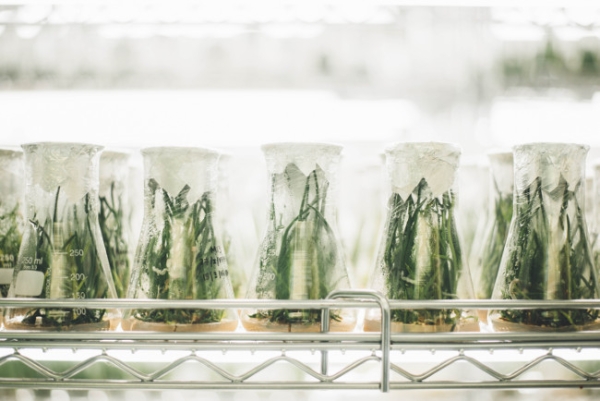
AIKATERINI KANDYLIARI
Laboratory Teaching Staff of Food Chemistry and Human Nutrition,
Agricultural University of Athens
2018–2019 Fulbright Greek Research Student Program to the U.S. Host: Yale University School of Public Health, New Haven, Connecticut
Food science encompasses a wide range of disciplines, including food chemistry, microbiology, nutrition, engineering, and sensory sciences. Aiming to understand how food ingredients interact and how foods are processed, preserved, and packaged, food science focuses on the study of the physical, biological, and chemical nature of food to create safe, nutritious, and appealing food choices.
To become a food scientist, one needs to have a strong educational background in food science or in related fields, such as chemistry, microbiology, or nutrition, as well as relevant work experience and a passion for the science of food. Food scientists use their knowledge and skills to develop new food products, improve the safety and quality of existing products, and ensure that food production processes are efficient, nutritious, and sustainable.
As food production is a complex process, there are many different areas of specialization in food science. These include chemistry, engineering, processing, microbiology, biotechnology, sensory analysis, safety and quality assurance, and nutrition. Therefore, someone can pursue a career in one or more of these areas, based on their interests and expertise. Generally, a degree in Food Science can open a wide range of career opportunities in the food industry, as well as in the research, academia, and policy-making sectors.
Because of different food science specializations, the focus of undergraduate and graduate studies in Food Science differs in terms of depth and specialization. At the undergraduate level, students usually receive a broad foundation in the principles of food science with the goal of being prepared for entry-level positions in the food industry or for advanced studies in a related field. At the graduate level, students can specialize in a particular area of food science and conduct more in-depth research. Graduate programs often require students to complete a dissertation based on original research, and they often have the opportunity to work closely with researchers and industry professionals on scientific projects. Graduate students can choose from a wide range of specializations to prepare for leadership roles in the food industry, research, and academia or to pursue advanced studies in a related field of study
Photo Credit: Chuttersnap for Unsplash

